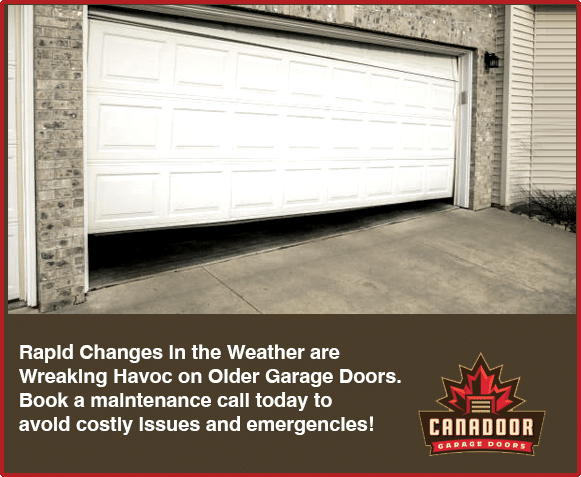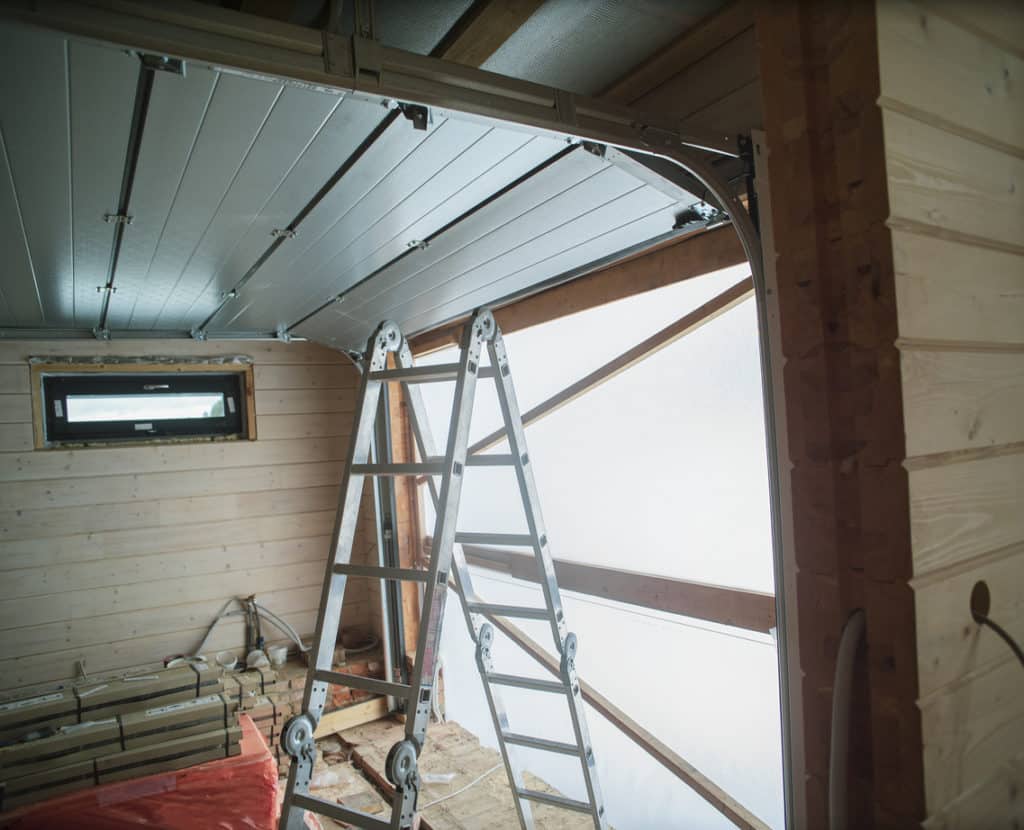How To Lubricate A Garage Door (Tracks, Rollers, and Springs)
Are you hearing strange noises every time you use your garage door opener? What should you do? Garage doors can become slow and noisy over time due to components rubbing against the garage door track (or against each other) during operation. Paying attention to what’s happening with your door can help you add years to its life and reduce garage door maintenance costs down the road.
If you have a sluggish or noisy garage door, taking a few minutes to lubricate it may be the quick fix you’re looking for. Like most things, the metal parts of your garage door need a little preventative maintenance to keep working the way they should.
Lubricating your garage door at least once a year should be part of your maintenance process. However, you can follow this process any time you have a noisy door.
What Should You Use To Lubricate Your Garage Door?
You’re probably used to grabbing a can of WD-40 and spraying the tracks. There’s a time and a place for everything, including WD-40, which we’ll cover later. In truth, there are much more effective ways to lubricate garage door rollers and other components, and people who use WD-40 as their go-to method to lubricate their garage door are actually doing more harm than good.
There are a lot of garage door lubrication options out there. If you go to the garage door lubricant section of your local Lowe’s or Home Depot, you’ll see a lot of options, such as mechanic’s grease, but a good garage door lubricant generally comes in one of two types:
- Lithium-based grease
- Silicone-based lubricants
But what’s the difference, and which should you use? Let’s ask the manufacturer.
Garage Door Manufacturers Recommended Lubricants
Proper garage door lubrication should be done at least twice per year with a synthetic or silicone lubricant. One of the leading garage door manufacturers in North America, Clopay, suggests lubricating garage doors with Clopay Garage Door Pro Lube or a synthetic lubricant. Although they don’t forbid the usage of a silicone-based lubricant, it’s worth noting that theirs is not a silicone-base.
Can You Use WD-40 To Lubricate A Garage Door?
We’ve got nothing against WD-40. It’s a great spray cleaner and degreaser, but that doesn’t mean it’s the right thing to use for garage door lubrication. The ‘WD’ in WD-40 actually stands for Water Displacement. That means it’s designed to help remove rust by breaking down the chemical bonds on oxidized metals, like your garage door parts.
The important part to remember is regular WD-40 is great at getting rid of rust or accumulated oils and gunk. It’s cleaning, not lubricating. However, I’ve got good news if you’re a die-hard WD-40 fan. WD-40 makes a White Lithium Grease that is specifically for garage door lubrication.
How Do You Lubricate A Garage Door? (Step-by-Step Guide)
Lubricating garage door rollers and hinges is key to keeping your door functioning properly. Here’s what you need to lubricate:
Lubricating Garage Door Hinges
Proper lubrication of any door starts with the hinges. To lubricate, start by spraying grease at the edge of both sides of the bracket. Then, do the same for each of the hinges. Finally, wipe off any accumulated dirt, dust, or debris on the roller wheel with a clean, damp rag.
Lubricating Garage Door Rollers
Your garage door may have nylon rollers or plastic rollers. Whichever type you have, garage door lubricants can help them operate more smoothly and silently. There’s no difference in how to lubricate nylon rollers compared to plastic ones. To lubricate your garage door rollers, start by spraying grease on the bearing. Then, operate the door manually to rotate the roller and make sure the grease is spread evenly. Do this for each roller until all of them are lubricated.
Lubricating Garage Door Tracks
Lubricating your garage door tracks are a little different than hinges and rollers. First, clean the tracks with a clean, damp rag to remove any dirt, dust, or debris that might be obstructing the movement of the door. Then, using a putty knife, apply lithium-based grease or silicone-based lubricant to the inside of the track. Apply it sparingly — you don’t want too much because it can gum up the works.
Lubricating Garage Door Chain/Belt Drive
If your garage door opener has a chain or belt drive, it’s important to lubricate it to keep it from rusting. To do this, start by spraying WD-40 Specialist White Lithium Grease on the chain or belt. Then, run the opener to distribute the grease evenly.
Lubricating Garage Door Springs
Lubricating garage door springs is important to keep them from rusting and breaking. To do this, start by spraying WD-40 Specialist White Lithium Grease on the spring. Then, use a putty knife to spread the grease evenly. Do this for each spring until all of them are lubricated.
The Final Step: Open The Door and Enjoy
Now that you’ve finished lubricating your garage door, open it and watch it move smoothly and quietly. That’s the sign of a well-lubricated garage door! Regular maintenance of your rollers and other door components can help add life to your door, so it’s worth doing whenever you feel your doors require lubrication.
If you have any questions or concerns about how to lubricate your garage door, leave us a comment below or get in touch and a Canadoor garage door technician and we’ll be happy to help.


